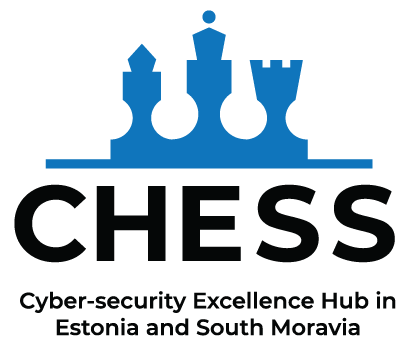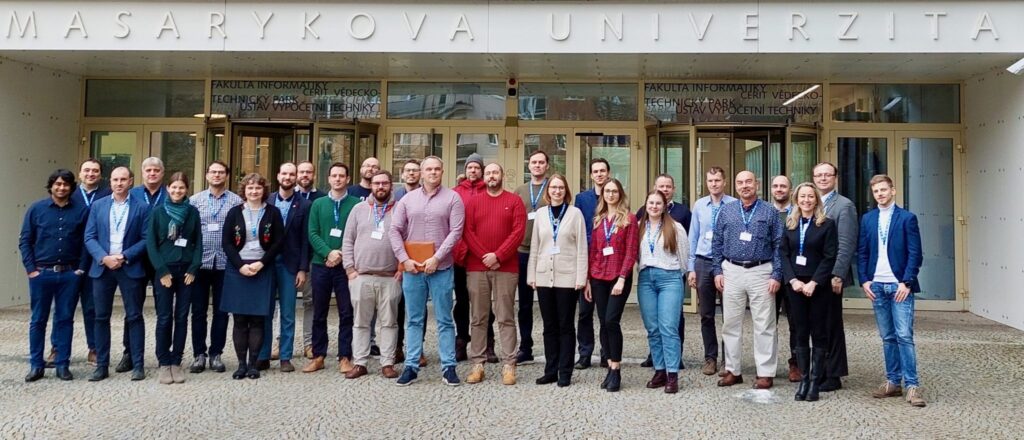CHESS: Cyber-security Excellence Hub in Estonia and South Moravia

The Cyber-security Excellence Hub in Estonia and South Moravia (CHESS) brings together leading R&I institutions in both regions to build connected innovation ecosystems to address one of the most important issues confronting Europe today: cyber-security. Estonia and South Moravia are teaming up to support the EU’s safe transition to a digital society. Estonia is among the most advanced digital societies globally, with an outstanding e-government infrastructure. South Moravia is a major Czech ICT powerhouse in industry and education, with a strong focus on cyber-security. The project runs in the span of 2023–2026, but the created collaborations are expected to carry on beyond this period.
Project objectives
- Develop a cross-border joint cyber-security research and innovation (R&l) strategy aligned with Czech and Estonian smart specialisation strategies and Europe’s digital society and cyber-security goals and apply the strategy in six focus areas of cyber-security outlined below.
- |nitiate at least 12 small-scale R&l projects consolidating academia business linkages, demonstrate validity of ideas, and provide evidence to obtain additional investments
- Develop a training strategy for both regions to increase cross border/sectoral cooperation and skills around the six priority areas
- Raise visibility, citizen engagement, technology transfer, entrepreneurship training, staff exchange, and mutual learning in cyber-security
Challenge areas
- Internet of secure things
- Privacy and security by design (data minimisation principles, data usage control)
- Modern cryptographic schemes (attribute-based credentials, group signatures)
- Balance between security, availability, and privacy is essential
- Security certification
- Multi-facet approach (organisational structures that produce devices, software that runs on these devices)
- Harmonisation schemes
- Standardisation of new and emerging cyber-security technologies
- Verification of trustworthy software
- Preserving reliability of integrated digital systems
- Minimising problems caused by software errors
- Security preservation in blockchain technology
- By being decentralised (less vulnerable, improve data privacy and pseudo-anonymity of participants, ensuring legal certainty via smart contracts and digital assets)
- Post-quantum cryptography
- Developing quantum-secure technologies – Post-Quantum Cryptography – secure, low-cost and interoperable with existing systems
- Human-centric aspects of cyber-security
- Regular training so that they are skilled in working with emerging technologies and responding to new threats
- Guarantee usability so that user behaviour will not jeopardize their benefits in terms of security and privacy
Project consortium
The CHESS consortium comprises4 academic institutions (2 general and 2 technical universities), 3 private companies (1 RTD subsidiary of a large multinational enterprise; 2 innovative medium-sized enterprises owned by local capital), 2 government agencies (1 as full and 1 as AP), and 2 NGOs (associations of local administrations and universities serving as interfaces to other sectors, 1 full and 1 associated).
- Information System Authority
- The Cybersecurity innovation hub
- The National Cyber and Information Security Agency (associated partner)
- The South Moravian Innovation Centre (associated partner)
- The Estonian Information Security Association (associated partner)


Funded by the European Union under Grant Agreement No. 101087529 Views and opinions expressed are however those of the author(s) only and do not necessarily reflect those of the European Union or European Research Executive Agency. Neither the European Union nor the granting authority can be held responsible for them.